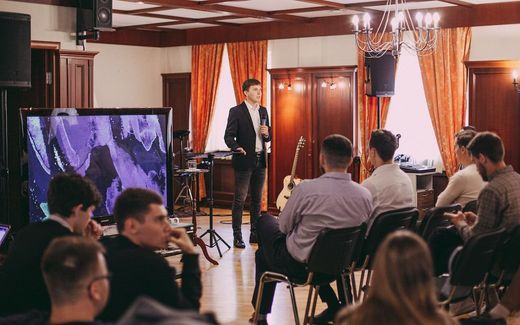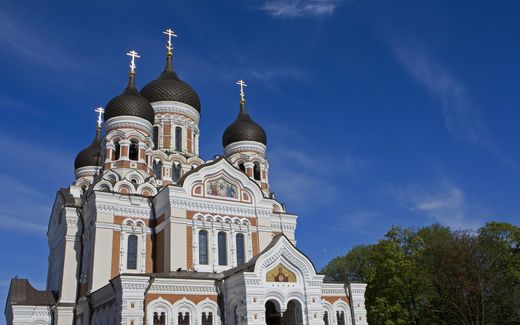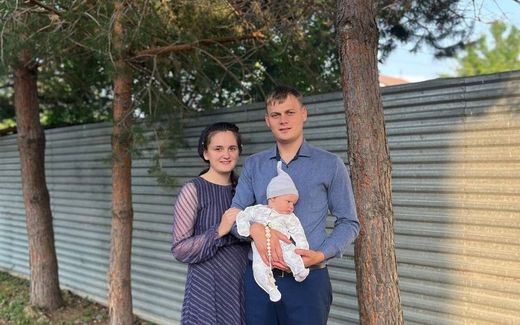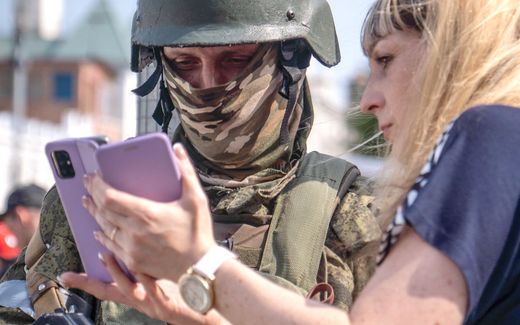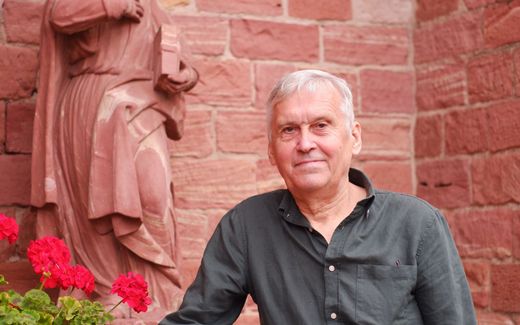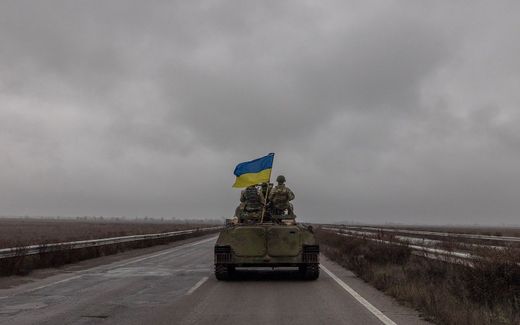Russia's church tribute to war correspondents draws criticism
08-04-2025
Eastern Europe
William Immink, CNE.news
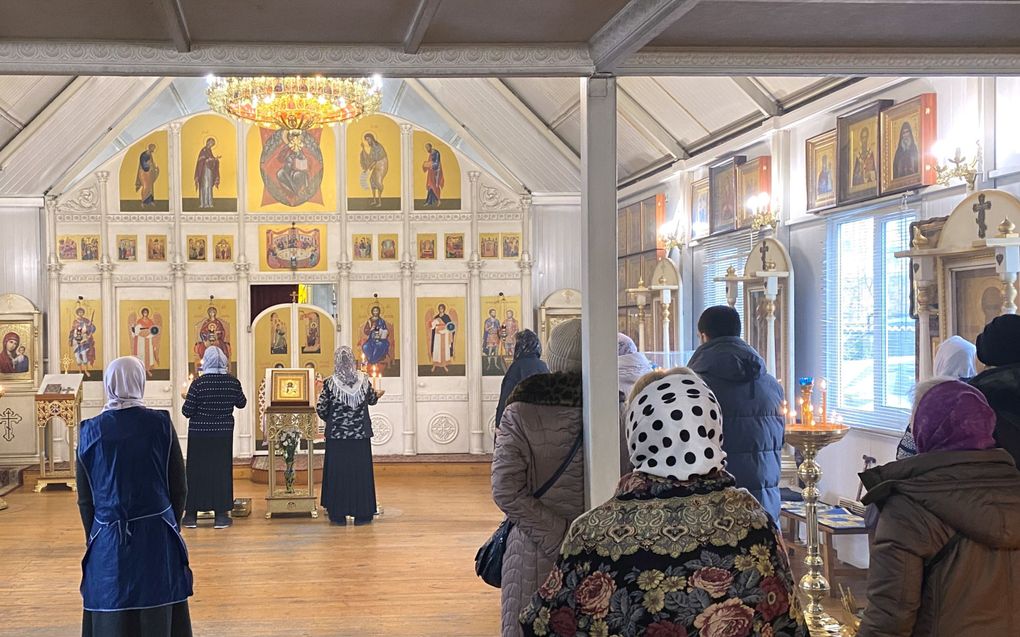
Visitors in an Orthodox Church in Russia dedicated to war-time journalists. Photo William Immink
Eastern Europe
In recent years, the Russian Orthodox Church has increasingly aligned itself with Russian nationalism. Is the Church’s focus on nationalism overshadowing its primary mission of spiritual salvation? We seek answers at the construction site of a church in Moscow dedicated to Russia’s war correspondents.
Stay up to date with Christian news in Europe? Sign up for CNE's newsletter.
On a cloudy Wednesday morning, a small group of older women gather for prayer in a modest, prefabricated church on the outskirts of Moscow, near the Bratislavskaya metro station. The church, constructed from lightweight plastic panels, sits in a park encircled by a busy roundabout. Surrounding the park is a skyline of grey, Soviet-era apartment blocks.
Despite the constant rumbling of traffic, the park feels peaceful. Children play in the playground while a woman and her child throw bread to the doves. A man practices his ice-skating skills on a small rink adjacent to the church. Inside the chapel, the priest leads prayers in Church Slavonic, his words echoed by a small three-tone choir. The air is filled with the scent of burning candles, and parishioners reverently kiss the icons.
Journalists
Dominating the park scene is a towering brick-red temple rising behind the temporary church. The grand structure, which stands twenty stories tall, is dedicated to the holy martyrs Anatoly and Protoleon, who both died as soldiers in the Great Patriotic War. The church is, therefore, a memory of Soviet soldiers who died in the Second World War.
The lower church is dedicated more specifically to war correspondents who have lost their lives in conflicts worldwide. More than a place of worship, the unfinished church structure is intended as a monument to the courageous journalist who spoke the truth about Russia's wars – at least, according to the Russian Orthodox Church.
The temple complex includes an alley dedicated to those who have died in various conflicts, from World War II to the ongoing war in Ukraine. Known as the Alley of Valor and Glory, it is lined with cedar trees –symbols of strength and endurance– that serve as a living tribute to the courage and resilience of those who perished in the pursuit of truth.
No Political Agenda
"The construction will be completed in God's time," says a woman working in the church's icon shop. "Officially, the temple is scheduled to open in 2026." Like all Russian Orthodox churches, this one has an icon shop. The shopkeeper, named Zoya, listens to the prayers while reading the Gospel. On her desk are donation boxes: one for the Special Military Operation and another for refugees from Kursk.
"Those poor people in Kursk," Zoya says, her eyes welling with tears. "The way the Ukrainians treated them was horrific." She pauses, with her voice tinged with emotion. "We shouldn't even call them Ukrainians; they were likely mercenaries from other countries." In her voice, one can feel the hurt and pain towards the West, who still support Kyiv even after the attack on Kursk.
Zoya insists that the church has no political agenda. "These war correspondents were struck down by stray bullets while performing their dangerous duties," she explains as she rearranges the icons. "They deserve this recognition. They died for their country. Thanks to them, we know how our soldiers are faring on the front lines."
When asked why a church should be built for war journalists, Zoya responds with conviction. "Those who die in war go straight to heaven, no matter what," she says. She attributes this belief to the teachings and traditions of the Russian Orthodox Church, rooted in the wisdom of the Church fathers. "It doesn't matter if they drank or used foul language; God will forgive them."
Soldiers of the Pen
War correspondents, often called "soldiers of the pen," have long played a pivotal role in shaping public understanding of conflicts. From the trenches of World War I to the battlefields of Syria, Donbas, and beyond, these journalists have risked their lives to ensure that the stories of war are not forgotten.
War correspondents also play a critical role in Russia's "special military operation." Beyond reporting on soldiers' experiences on the front lines, they often serve as a vital link between the troops and their command centres. War correspondents become their voice when soldiers' pleas go unheard by their superiors.
One notable example of their impact occurred when frontline soldiers requested shotguns to combat enemy drones. Initially dismissed by commanders, the correspondents amplified the soldiers' concerns, leading to the widespread distribution of shotguns. This simple yet effective measure has since saved countless lives.
Salvation
The Russian Orthodox Church has been constructing churches at an unprecedented rate – reportedly three per day. This rapid expansion reflects the church's growing influence in Russian society and its alignment with state interests. However, critics argue that this nationalistic focus may detract from the Church's spiritual mission.
Related Articles

